Former Austin City Council member, urbanist champion Chris Riley, 60, dies
Chris Riley, a former Austin City Council member and champion of Austin's urbanist movement, died on Sunday from complications with cancer, his family confirmed to the American-Statesman. He was 60.
Friends and family remembered Riley as passionate, dedicated, ethical, intelligent and a visionary. Michael Riley, his brother, said Chris Riley's final moments were spent with close friends and family gathered around him. Riley died peacefully later Sunday night with his wife, Denise Brady, next to him.
He served as an at-large City Council member from June 2009 through January 2015, when Austin moved to a 10-1 council with each member representing a different geographic district.
During his tenure, Riley advocated for urbanist policies to make downtown living more attractive, especially for people walking or cycling. Riley lived downtown and got rid of his car years ago, relying on a bicycle.
He was at peace in his final weeks, telling the American-Statesman on July 13: “It's time, and I'm ready to go. It's been such a wonderful, blessed life."
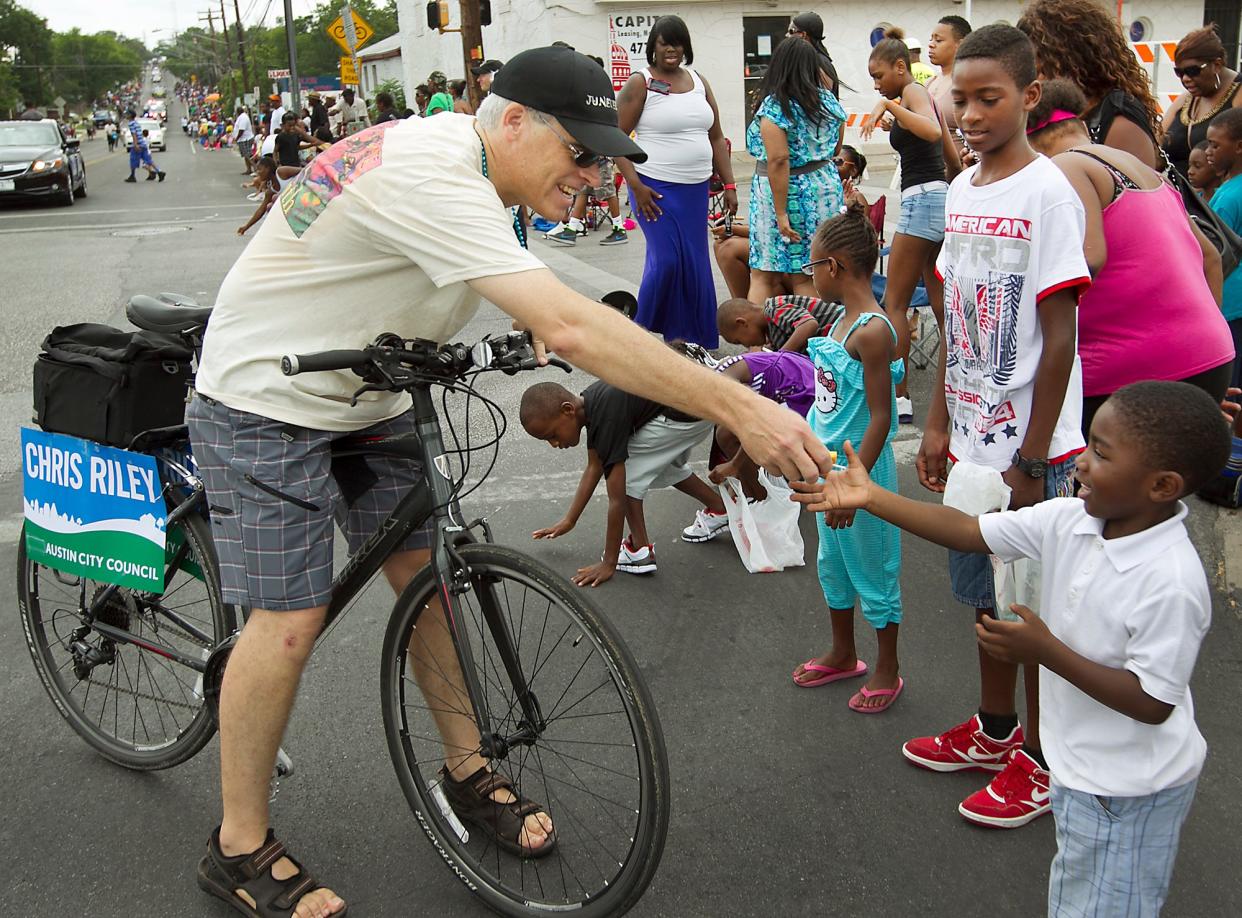
More: Chris Riley will leave a changed Austin. He wants others to keep legacy going | Grumet
Riley was born and raised in Austin, spending much of his time in Tarrytown. His younger brother, Michael Riley, said his brother “had his own rhythm and way of doing things, and it was fun to watch.”
He was the middle child of four, and his father was a physicist at the University of Texas, while his mother worked from home and at times with her husband in the physics department. Michael Riley recalled fond memories of the whole family and their dog loading up in the car and traveling to New Mexico each summer for his father's research trips.
Even in high school, Riley’s ambitions led him down a different path. He left Austin High and moved to Washington, D.C., at 16 to be a page for U.S. Rep. J.J. Pickle. He then attended Harvard University, where he earned his undergraduate degree.
But Austin was Riley’s home, and the place he loved. He moved back and attended UT law school.
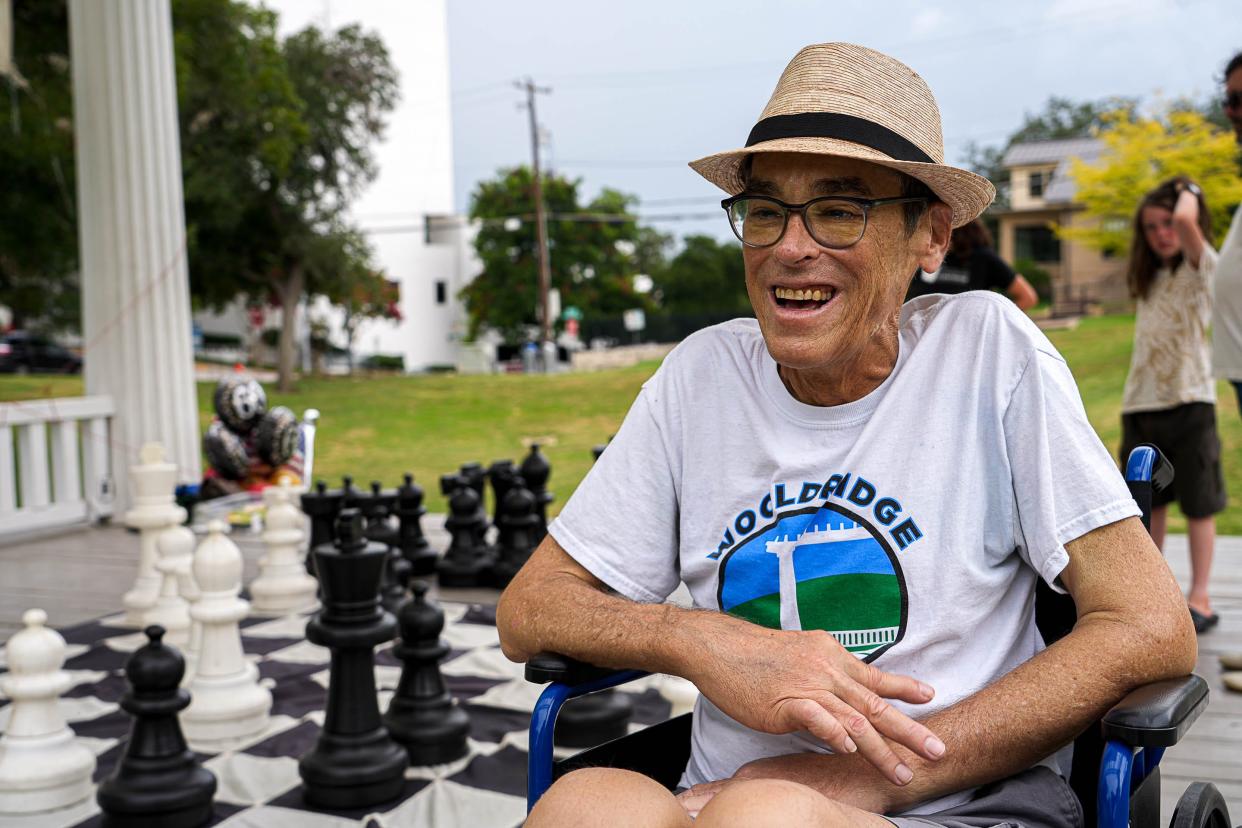
Friends and family regarded him as the life of the party, the person getting everyone together to soak in Austin’s vibrant live music scene or explore the dive bars, of which he had an “encyclopedic knowledge," his brother said.
Not only did he love listening to music, but he was an “elegant dancer,” Michael Riley said, practicing everything from swing to the jitterbug at venues such as the Continental Club.
Carolyn Ostrom, an attorney, met Riley on their first day of law school and they remained good friends. Even in those early days of law school, Ostrom said, Riley was always passionate and determined.
“He just had a clear vision of what he wanted to do,” she said. “He's incredibly thoughtful and ethical. And he really puts his money where his mouth is. … He has beliefs, and then he lives his life according to those beliefs.”
Chris Riley's impact at City Hall
Riley returned to his old stomping grounds in May. Sitting at the front of a packed City Council chamber at City Hall, Riley was honored with an ordinance renaming a section of the Shoal Creek Trail between West Avenue and Fifth Street as “Chris Riley Bend."
"We owe its current state to his work before, during and after his time on City Council," Council Member Ryan Alter said at the meeting. "After being washed out in the 1981 Memorial Day flood, it stood derelict for years. Chris' tireless advocacy ultimately led to reconnecting downtown with the rest of the historic Shoal Creek Greenbelt.
"In the future, this bend will connect future generations of Austinites to the life and work of Chris Riley," Alter continued. Former colleagues, council members and friends gave Riley a standing ovation.
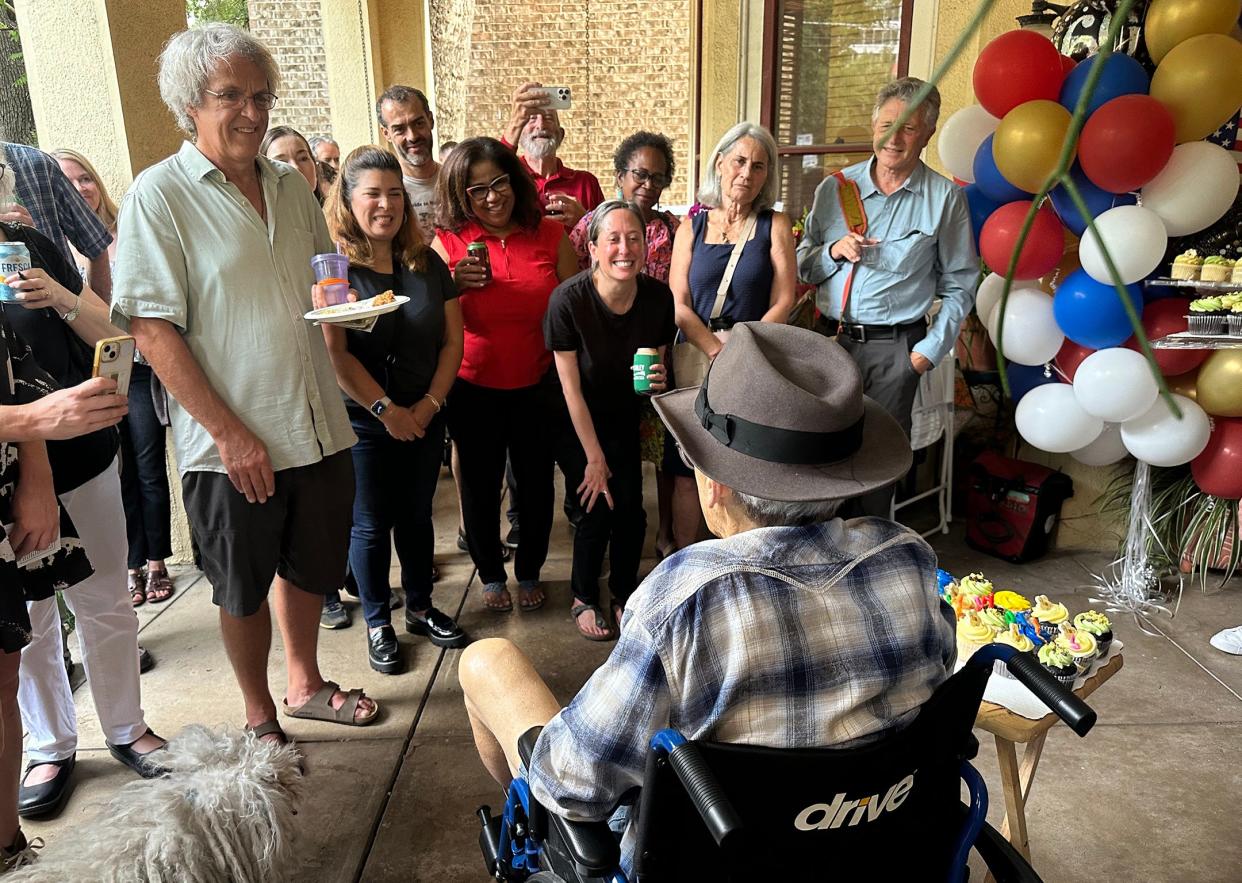
Riley, wearing a gray suit jacket and soft purple dress shirt, said he was "moved and touched" by the dedication. He drew laughter when he said, "I wish I'd had some of that support" while on the council.
Riley was an "early adopter" of several urbanist policies, Leah Bojo, who worked as a policy aide for Riley while he was on the City Council, told the Statesman. But his policy ideas weren't always met with the same level of support they are now.
"People thought we were nuts and thought there's no way these things were going to happen," Bojo said.
But Riley knew it was possible, Bojo said, and he continued to advocate for parking reform and biking and transit infrastructure.
"There's no way we would be where we are today if he hadn't been so dedicated to those priorities of his," said Bojo, who now works at the Drenner Group.
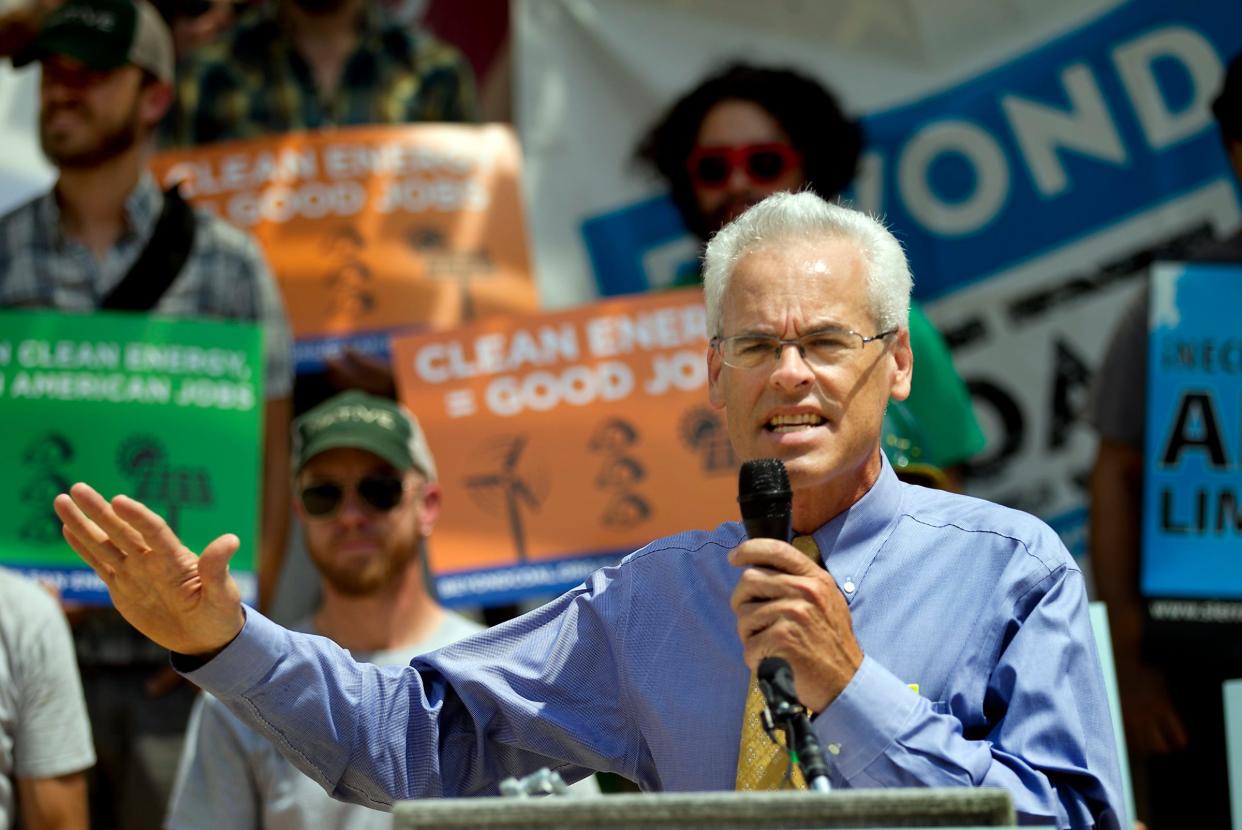
Nearly a decade after Riley ended his tenure, the City Council voted to eliminate parking requirements citywide and supported reducing minimum lot sizes, allowing more housing to be built. He was an early proponent of making it easier for people to build accessory dwelling units, better known as garage apartments or granny flats, to provide more housing options. And he welcomed the arrival of Uber and Lyft at a time when City Hall was fighting over the rules for transportation apps that many residents now use.
Ben Leffler, who served as a policy adviser for Riley and now works in Alter's office, described his former boss as a "thought leader."
Many in Austin were apprehensive about change and growth in 2014, Leffler said, but Riley was the "absolute opposite."
"He's like, 'We're so lucky to be in this vibrant city and we should be welcoming all these people that are coming here, because they're making it more vibrant and more interesting,'" Leffler said. "It was just a completely fresh take ... and it really struck me, and it was optimistic."
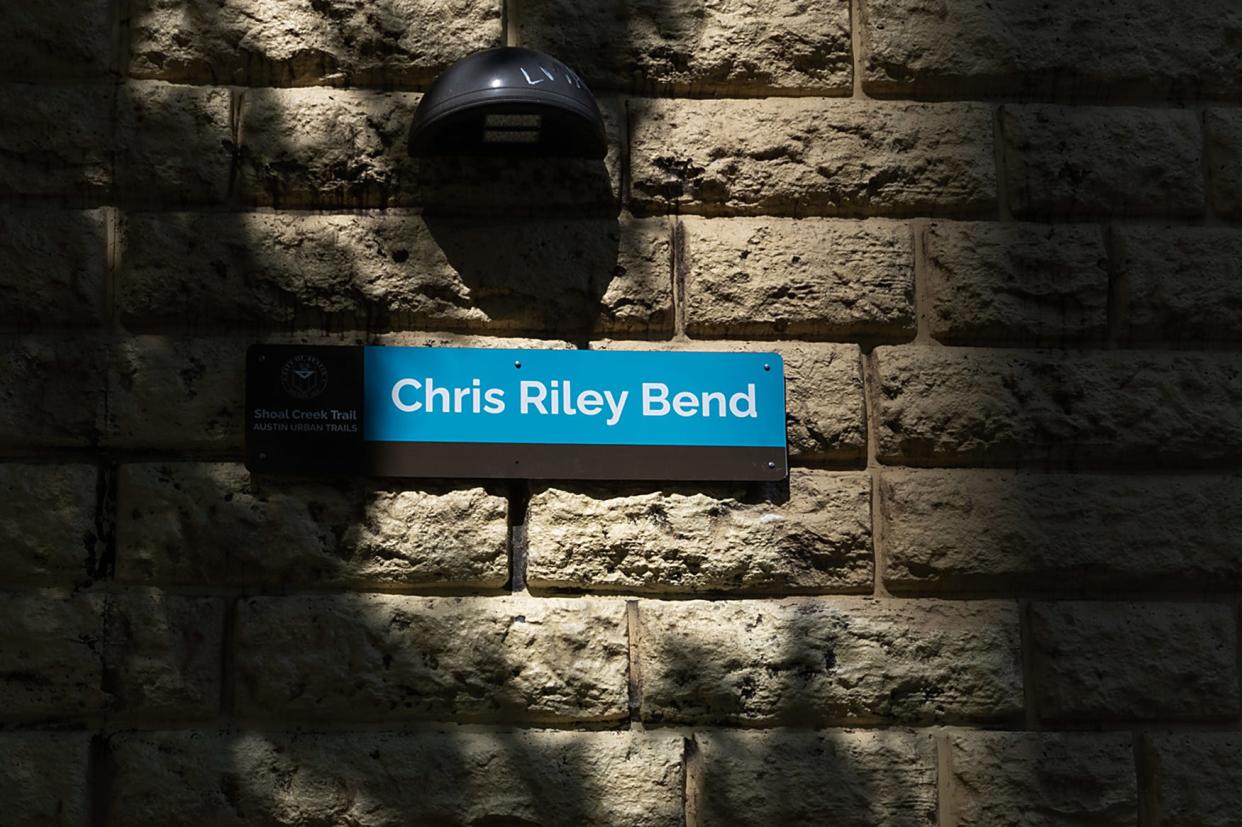
In the 2014 election, Riley faced off against then-fellow Council Member Kathie Tovo and Erin McGann. With no one winning a majority of the vote, Tovo (49.1%) and Riley (40.4%) were headed toward a runoff.
But Riley decided to leave the race, saying he remained dedicated to the policies he championed but also felt "that, as we begin this new era with a new council, a contest that creates negativity and division is not how we should set the tone for Austin going forward."
Riley went on to receive his master's degree in urban placemaking and management from the Pratt Institute in New York. He remained active with organizations such as Safe Streets ATX.
In the weeks before his death, Riley talked about "Man's Search for Meaning," a Viktor Frankl book that describes three ways in which people find meaning in life. One is to achieve things; Riley said he found that through the impact he had on Austin. Another is through relationships; Riley said he found that with his wife and partner of 25 years, Denise Brady, as well as other friends. The third is through the way a person responds to hardship. Riley exuded joy and gratitude in his final months with a terminal illness.
"I've had all three opportunities to draw meaning in spades now, so I feel like it's been a very beautiful, satisfying happy life and I'm ready to go," Riley told the Statesman on July 13. "And I feel very blessed about all the opportunities that I've had, and all the joy that I've had, and so I can leave this world with a smile on my face. It's been great."
Riley is survived by his wife, Denise Brady; his parents Eva and Peter Riley; his sister and her husband Joan Laves Reitblatt and David Reitblatt; his older brother, Ken Riley; his younger brother and his wife, Virginia and Michael Riley; two nieces, Susan Laves Mandel and her spouse Jacob Mandel and Sarah Laves and her partner David Kroopnick; three nephews, Jake Laves and his partner Athena Canjura, Charles Riley and Chris Riley; his grandniece and nephew, Augie and Max Mandel; along with his many cherished friends.
Funeral arrangements are pending.
This article originally appeared on Austin American-Statesman: Former Austin City Council Member Chris Riley dies at 60






